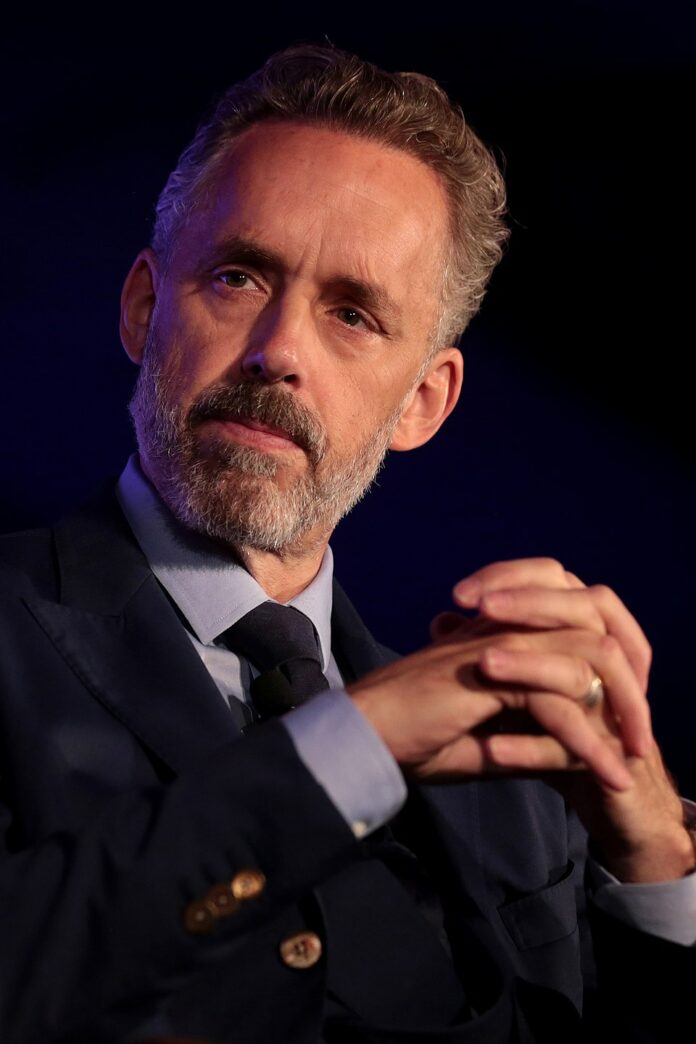
Jordan Peterson’s appearance on Jubilee’s viral YouTube episode, originally titled “1 Christian vs. 20 Atheists” and later changed to “Jordan Peterson vs. 20 Atheists,” laid bare the enduring ambiguity at the heart of his symbolic engagement with Christianity. In my recent article for Crisis Magazine, “He Who Wrestles with God in Public: Jordan Peterson Versus Himself,” I showed how Peterson’s rhetorical strategy keeps him on the edge of doctrinal clarity, never fully stepping into the full confession of Faith that the Christian faith demands. This reflection for Catholic Insight builds upon that analysis but also looks at each claim made by Peterson in the debate and one made by his interlocutors. integrating insights from my prior work to clarify where his approach aligns with the Christian moral vision and collapses into idolatry and relativism.
Atheists Reject What They Do Not Understand
In the Jubilee debate, Peterson began by asserting his first claim: “Atheists reject God, but they don’t understand what they’re rejecting.” He rightly challenges the superficiality of much modern atheism, which dismisses a crude, anthropomorphic caricature rather than the robust, philosophical account of God as a necessary being and ground of all reality. In “Canada’s Boldest Professor Defies the Gender Police,” I noted how Peterson’s early fame stemmed from his willingness to confront shallow orthodoxies on language and truth, and here he exposes a similar intellectual laziness in popular atheism.
However, as I argued in “Why We Should Be Cautious of Jordan Peterson,” he often replaces this strawman with another distortion: a conception of God that is archetypal, symbolic, or psychological rather than the transcendent, eternal Creator. He has even cited Cardinal Newman to defend the idea that “God is conscience,” but this is a misreading. Newman never equated conscience with God; rather, he described conscience as the echo of the divine law within the human soul. Peterson psychologizes what Newman rigorously theologizes.
Morality and Purpose Cannot Be Found Within Science
Peterson’s second claim in the debate, “Morality and purpose can’t be found within science alone,” is perhaps his strongest contribution. He consistently reminds secular audiences that empirical facts describe what is but cannot establish what ought to be. In “A Dialogue on Life’s Meaning: An Assessment,” I acknowledged how his critique helps recover ground that scientism has long eroded. He recognizes that humans require moral frameworks and teleological meaning that cannot be derived from materialism alone.
Yet, as I demonstrated in “The Peterson–Craig Encounter: A Missed Opportunity?,” his refusal to ground objective moral truths in the Christian God leaves his diagnosis hanging in abstraction. He gestures at moral objectivity but hesitates to name its Author. He calls for order over chaos but avoids the claim that true moral order flows from the eternal nature of a personal God.
Everybody Worships Something
Peterson’s third claim, repeated emphatically in the debate, is “Everybody worships something, even atheists, whether they realize it or not.” On the surface, this resonates deeply with biblical anthropology: humans are created to worship and will inevitably direct that instinct somewhere, rightly or wrongly.
One of his interlocutors, Zina, pressed him to define what he meant by “God,” and in doing so, exposed the internal incoherence of his framework. Peterson defines God as the “fundamental value” at the base of one’s personal value hierarchy, a concept that may initially sound insightful but ultimately collapses into relativism and idolatry. When Zina asks whether different people can have different foundational values, Peterson agrees, which effectively implies the existence of many “gods.” Yet if these foundational values can be evaluated by other criteria, such as “iterability” or “breadth of application” (Peterson’s own criteria), then they are not truly fundamental or foundational, nor are they divine in any meaningful sense. This results in a worldview where each person creates their own god based on personal preference or utility, rather than submitting to the one true God who reveals Himself in history. In the end, Peterson unwittingly participates in the very idolatry he critiques, namely, worshipping a man-made construct of ultimate value rather than the incarnate Christ.
The outcome is precisely what Saint Paul warns against: humanity exchanging the glory of the immortal God for images fashioned by human imagination (Romans 1:21-23). In my letter, Dear Dr. Peterson, I encouraged him to look beyond popular secular commentators and to engage deeply with the best philosophical and theological scholarship available so that his powerful cultural insights might be grounded in the reality of the God who alone is worthy of true worship.
Christian Morality Without the Christian Story
Peterson’s fourth claim in the Jubilee debate, “Atheists accept Christian morality but deny the religion’s foundational stories,” touches on a genuine contradiction at the heart of secular modernity. He is right to insist that our talk of human rights, dignity, and compassion does not float free of the Judeo-Christian tradition but is historically rooted in it.
In “Jordan Peterson: An Antidote to the Dissolution of the West,” I argued that part of Peterson’s popular impact comes precisely from his ability to reintroduce scriptural wisdom, archetypes, and moral seriousness to a culture unmoored from its theological anchor. I wrote then that for over a year and a half, Peterson emerged as “an unlikely hero to millions and a fierce critic of the radical left’s ideological agenda,” and that through his second book, 12 Rules for Life, he has offered a generation of disoriented young men, in particular, a call to “shoulder the burden of Being and to take the heroic path.” His popular work counters the nihilism, addiction, resentment, and moral confusion that define so much of post-sexual revolution culture.
Peterson calls people to personal responsibility, to resist ideological possession, and to confront their own capacity for evil. These insights are deeply consonant with Christian anthropology. As I noted, his practical advice and accessible use of Carl Jung’s archetypal psychology have drawn secular truth-seekers to reconsider the moral vision embedded in Scripture. Indeed, he often does more to awaken moral seriousness than many modern preachers, priests, or theologians who water down the Gospel out of fear of offending contemporary sensibilities.
Nevertheless, I stressed that Peterson’s reading of biblical texts as psychological myths, however profound, still stops short of proclaiming their historical and doctrinal truth. He reframes Christ as an image of voluntary sacrifice for order over chaos, rather than confessing Him as the incarnate Logos whose death and resurrection ground not just moral insight but eternal hope.
Not Biblical Christianity
The atheists in the Jubilee circle were not wrong to insist that Peterson’s framework diverges radically from biblical Christianity. He frames Christ as an archetype of sacrifice rather than the Lamb of God who takes away the sin of the world. Sin, for Peterson, is an existential burden rather than rebellion requiring forgiveness. In “The Peterson–Craig Encounter: A Missed Opportunity?,” I argued that until he confesses Christ crucified and risen, he remains a voice against nihilism but not a witness to the Gospel.
The Deeper Problem: Symbolism Becomes Idolatry
When the word “God” is reduced to a self-chosen highest value, worship collapses into idolatry. As history and contemporary culture demonstrate, humans have the propensity to enthrone the creature over the Creator, justifying the very spiritual disease that revelation seeks to cure. Peterson names the problem but, by defining God psychologically, unwittingly perpetuates it.
Conclusion: From Symbol to Confession
Peterson’s public struggle has helped many sense the bankruptcy of a secular worldview. But he stops short of directing them beyond myth to truth, beyond symbolic archetype to the Word made flesh. As I have shown throughout my work, the road to truth is not a hierarchy of values but a crucified and risen Lord who alone has the power to save.
May those who admire Peterson’s moral clarity follow it further than he himself has yet dared: past the wisdom of archetypes to the wisdom of the Cross, past the language of myth to the living God who speaks.
Further Reading
- Why We Should Be Cautious of Jordan Peterson
- Jordan Peterson: An Antidote to the Dissolution of the West
- The Peterson–Craig Encounter: A Missed Opportunity?
- Canada’s Boldest Professor Defies the Gender Police
- The Deconstructing of Deconstructionism: Peterson Versus Derrida
- A Dialogue on Life’s Meaning: An Assessment
- Dear Dr. Peterson











